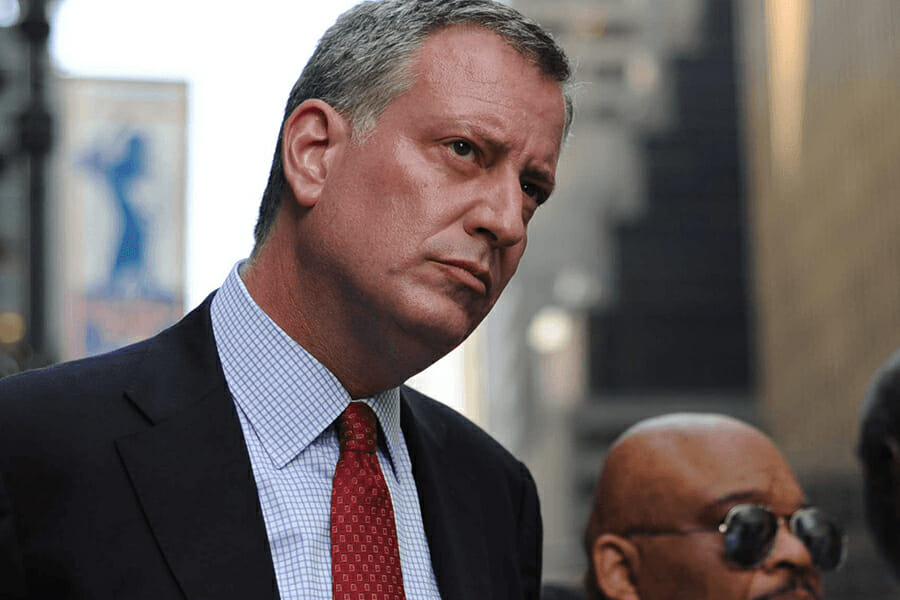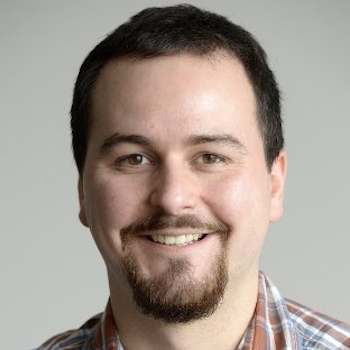
The Mildly Terrifying Subtext of the NYPD Shootings
The shooting deaths of two NYPD officers this past week has thrown gasoline onto the fire that has been simmering between the city’s police department and the community since Eric Garner and a wave of other police deaths sparked protests in the streets of New York City. The murders, performed execution style while the officers were sitting in a parked police cruiser, have brought the sides to a standstill amid cries that Mayor Bill de Blasio and other protesters were responsible for inciting the violent act. Though virtually all parties involved have condemned the killings, the police department and their political allies have charged that de Blasio’s reform efforts and the protests against police have inspired an atmosphere of violence that encouraged the shooting.
“We’ve had four months of propaganda starting with the President, that everybody should hate the police. I don’t care how you want to describe it, that’s what those protests are all about,” said former mayor Rudolph Giuliani during an interview with Fox News. He later went on to say that he did not blame de Blasio personally for the shootings but that de Blasio was wrong to criticize the city’s law enforcement approach and should be more or less one hundred percent supportive of all police efforts from here on out.
Perhaps the most incendiary comments have come from Patrick Lynch, who heads the largest police union in New York City. Lynch’s already infamous “blood on their hands” quote laid the blame for the shooting squarely at the feet of the de Blasio administration. The killer, Ismaaiyl Brinsley, had been arrested 19 times in 3 states, praised the protests against police and named Eric Garner and Michael Brown before he committed the acts. Investigators are currently attempting to determine whether Brinsley has any connections to the protests or attended any rallies.
Lynch has charged that de Blasio’s rhetoric and tone has cultivated a culture of disrespect and contempt for police that spurred the shooter to action. Giuliani’s comments echo that, though he did take pains to say he didn’t personally blame de Blasio for the killings. There are two important things to consider here.
First: it’s not typically wise to simply accept at face value the rationale provided by a mentally disturbed person with a violent history. This is particularly true when they suddenly kill others and then turn the gun on themselves. Brinsley had a decades-long criminal history and was estranged from family and friends. Even the NYPD chief of detectives Robert Boyce has said that the investigation discovered Brinsley had “self-despair and anger at himself and where his life was,” and was just a year away from a previous suicide attempt. Friends and family believe he was mentally ill. The morning Brinsley drove to New York to commit the killings he shot his girlfriend, which likely precipitated the entire episode. Whatever else he was, Brinsley was clearly emotionally unstable and in the grips of severe personal depression. It stretches credulity to suggest he is somehow representative of the average protestor, or that city politicians are responsible for motivating or influencing his actions.
Second: New York City, like any city, is a political world unto itself. The police unions have long played an outsized role in city politics, and their history of dissatisfaction with every form of criticism regarding police conduct is well documented. Former New York Times reporter David Firestone has detailed similar stunts and accusations from the unions targeting every mayor since the 1990’s. Mayor David Dinkins was accused of hugging drug dealers and Michael Bloomberg was threatened with police pickets at the Republican National Convention during a contract dispute. Even Giuliani, who believes anything less than full throated support for the police is tantamount to undermining the public safety, was bitterly criticized by union leaders in methods very similar to the current broadsides being lobbed at de Blasio. If you can get past the over-the-top headline, this Gawker article also provides a run-down of hyperbolic and accusatory comments leveled by Lynch since 2000. That the killings would be immediately politicized and tied to insufficient support for all police actions was regrettably predictable.
Here’s the mildly terrifying subtext of those comments: Lynch and the police establishment do not believe that there is any legitimate way for the public to challenge or change the behavior of the officers walking their streets. Charging that the very act of protest (even peacefully) creates a climate that incites violence against police means that the people of New York City effectively have no recourse to air their grievances or impact their city’s approach to law enforcement. If a man selling cigarettes and non-violently resisting arrest is strangled to death by an officer with multiple racial profiling lawsuits filed against him, there are no lessons to be learned. If an unarmed man is shot 41 times on the steps of his own house by police officers who all swear they were under imminent threat, there is no room for improvement in how police officers are trained to deal with encounters with the public. Even stop and frisk policies have not changed significantly since last year’s court ruling. The numbers for 2014 show that while the tactic has been dramatically curtailed over the past year (just under 40,000 in the first three nine months versus 685,000 in 2011), the percentages of citizens stopped by race remain virtually unchanged from previous years. The neighborhood Garner’s death took place in was the most targeted area for stop and frisk in 2014.
Despite the terrible relations he has with the unions, de Blasio cannot be easily labeled as anti-police. As the Washington Post has reported, the mayor oversaw and approved a $400 million increase in the police department’s budget. What de Blasio is guilty of is criticizing police behavior and tactics. While de Blasio’s opposition to Stop and Frisk is cited as an example of his lack of police support, it’s difficult to fault him for the stance. Apart from the widespread complaints the policy has received for almost exclusively targeting black and Latino minorities (virtually all who were found to have committed no crime), in 2013 a federal judge ordered the department to alter its practices, charging them with violating the due process and equal protection amendments to the Constitution. De Blasio ‘s opposition predated that ruling but was justified by very similar concerns. Moreover, the mayor has not completely discounted the central message of the protests: that the NYPD could alter its law enforcement practices to reduce the perception that it is indifferent to the civil rights of its minority population. This is quite different from willfully encouraging harm on officers walking the streets.
Beyond the letter of the law, there are larger issues at stake here. The NYPD (ostensibly) serves and is accountable to the citizens of New York City and their elected representatives. The department is not a self-contained or autonomous organization. Whatever they may think of de Blasio, the man is the mayor of New York City and their boss. He is supposed to reflect the will of the people. While that doesn’t entitle him to carte blanche, it does bestow at least an aura of credibility to his efforts.
That’s how the system works, regardless of how Lynch and the police unions feel it should. Like any mayor, de Blasio has a responsibility to work with the NYPD and police unions to ensure their views and perspectives are considered when it comes to the rules and regulations that govern the city’s criminal justice apparatus. But in a democracy those are not the only views and perspectives that matter, and in this situation it is hard to think of a more textbook case of an electorate using the system to effect change. The people protesting in the streets over excessive use of force are de Blasio’s bosses, both in a civic and political sense. They’re the ones who voted him into office. Instituting tougher oversight on the police department and rolling back its more hard-nosed policies was part of de Blasio’s official campaign platform. Ending stop and frisk was cited specifically. At some point this has to stop being a matter of differing opinion and the question has to be asked of how accountable the NYPD should be to the will of the people and the system of government they’ve elected.
Moreover, we are taught that in a democratic society there are two ways of legitimately affecting change: through the ballot box or through peaceful and lawful means of organized action. That both of these approaches are now being labeled as dangerous and illegitimate by the NYPD unions and their political allies indicates, along with the senseless murder of two NYPD officers, that we may have entered the most frightening chapter of this entire nightmare.

